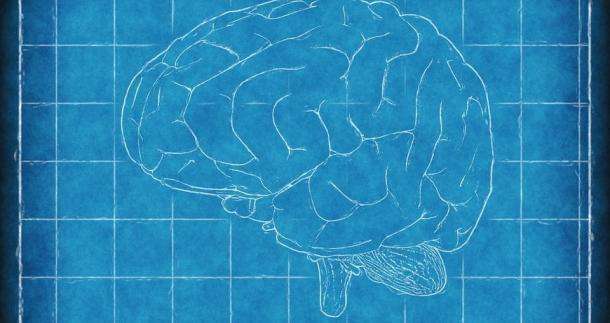For many people, alcohol is a part of their regular life, be it drinks with dinner or catching up with friends over a Friday night cocktail. In low to moderate amounts, alcohol has its benefits – it makes people more happy, more social, and more relaxed. It is also believed that responsible drinking carries certain health benefits, especially for the heart and conditions such as diabetes and gallstones. Unfortunately, alcohol, especially if abused over a long-term period, has many downsides as well, especially on the brain.
At Smarmore Castle, we often treat patients presenting with symptoms of mild brain damage, which can respond well to treatment. Although less frequently, we also see patients with severe brain damage who may be unlikely to gain much benefit from treatment and for whom the prognosis is poor.
What is Alcohol?
Alcohol is classified as a depressant drug, which means it slows down the central nervous system and bodily functions. Alcohol affects various neurotransmitters in the brain, including GABA, glutamate, serotonin and dopamine, producing the well-recognised effects of drinking such as slower movement, slurred speech, lower inhibitions, increased euphoria and better sociability.
While many people use alcohol responsibly as a way to unwind, others develop a drinking problem. Like other drugs, alcohol can be highly addictive, both physically and psychologically, and just as dangerous as serious substances such as heroin.
Drinking Alcohol has Negative Consequences from the Start
Excessive drinking causes intoxication, which may cause loss of coordination, dizziness, vomiting, poor judgement, reduced reaction time. Drinking too much, too fast can cause blackouts, loss of consciousness, coma, or death.
Chronic or heavy drinkers may end up experiencing withdrawal symptoms upon cessation of drinking. Withdrawal symptoms include cognitive impairment, mood swings, nausea or vomiting, sweating, sleeping problems, seizures and hallucinations. While a hangover is not equivalent to withdrawal, if you’ve ever had one, you’ve experienced to some degree how horrible the symptoms can be.
Over time, alcohol can produce various negative effects on the body as well, including balance and coordination issues, digestive distress, pancreatitis, liver damage, heart damage, osteoporosis, diabetes, stroke and sexual dysfunction. The physiological damage due to alcohol is usually more evident than the brain damage, which unfortunately can be just as serious.
What Effect does Misusing Alcohol Have on the Brain?
Alcohol affects the brain greatly, both in the short-term and long-term. Alcohol also influences activity in the cerebellum, hippocampus, frontal lobe and other parts of the brain.
Some of the effects are alcohol are clear and obvious, while others are not. The changes alcohol produces in the brain affect a person’s behaviour, emotions and physical state. Oftentimes, it is these changes to the brain that are responsible for alcohol’s physiological symptoms.
Short-Term Effects of Alcohol on the Brain
Most of us are familiar with the short-term effects of alcohol consumption. In small amounts, alcohol feels like a stimulant, producing a warm, happy, energised and sociable feeling. This is due to elevated glutamate activity, and serotonin and dopamine levels. At moderate or heavy amounts, it will switch to being a depressant, producing a relaxed, lazy-like sensation. This is caused by elevated levels of GABA, an inhibiting neurotransmitter.
In addition, alcohol clouds one’s judgement and lowers inhibitions by reducing activity in the frontal lobe, which can lead one to making foolish decisions or partaking in risky behaviour.
Alcohol’s Effects on Different Parts of the Brain
Alcohol’s effects on the cerebellum cause a person to develop balance and coordination issues. With elevated blood-alcohol levels, a person will likely feel dizzy, experience blurred vision, or won’t be able to walk in a straight line.
Alcohol’s effects on the hippocampus are responsible for a person’s memory loss and blackouts. There is a widely held belief that alcohol makes people forget – this is not exactly true. Generally speaking, alcohol prevents the formation of new memories. Having said that, legitimate memory loss does happen to people with long-term alcohol-induced brain damage.
In both short and long-term, alcohol tends to have a more dramatic effect on people with a comorbid condition such as depression, schizophrenia, or bipolar disorder. Alcohol tends to increase mood swings and worsen symptoms. Some mental illnesses are actually triggered by excessive consumption.
Most short-term effects occur due to high blood-alcohol levels, and can be relieved by taking breaks between drinking, alternating between alcoholic and non-alcoholic drinks, slowing down the pace of drinking and not consuming alcohol on an empty stomach.
Long-Term Effects of Alcohol on the Brain
Repeated heavy drinking is known to cause long-term brain damage, especially in areas responsible for memory and learning. The extent to which alcohol affects the brain can come as a surprise for many. Most of it is believed to be caused by brain shrinkage, nutrient deficiency, and damage to brain cells and neural networks.
1. Shrinking Brain
Studies have shown that drinking over a long period causes the brain to shrink in volume, which also happens naturally when a person gets older. This is true even for low and moderate drinkers, however heavy drinkers appear to have the highest levels of damage. It has also been noticed that brain shrinkage due to alcohol is more significant in women than men.
2. Early-Onset Dementia
While it is normal to experience some memory loss due to old age, alcohol consumption seems to speed up the process. Regular excessive drinking is also tied to Alzheimer’s. On average, heavy drinkers see cognitive decline several years earlier than a non-drinker, especially if they start drinking as young adults. In addition, the side-effect of early onset dementia is more noticeable in men.
3. Damaged Reward Response
With chronic drinking and a higher tolerance, a person’s reward system will likely experience changes as well. As with any drug, if the brain is constantly artificially boosted by substances, it will eventually get used to the effects, and the brain will classify elevated reward hormones as normal, and normal levels of reward hormones as a low. Hence, if a person stops drinking, they will feel depressed, anxious or irritable. Staff at Smarmore Castle are aware of this and make sure that proper levels of support and reassurance are provided.
4. Brain Cell Death
Even without constant heavy drinking, alcohol is known to kill brain cells and damage cellular networks. Fortunately, our brain has the power to repair itself. But this cannot happen if a person is continuously drinking. In some situations, the damage is irreversible.
5. Wernicke-Korsakoff Syndrome
When discussing long-term alcohol-induced brain damage, this disease is what many professionals refer to. Also known as “wet brain”, it is actually a two-part disease: the milder Wernicke’s encephalopathy and the more serious Korsakoff’s psychosis. Both are caused primarily by thiamine (vitamin B1) deficiency, which is common in heavy drinkers. Not only does alcohol prevent absorption of thiamine, but heavy drinkers are also known to have poor nutrition habits.
Wernicke’s encephalopathy symptoms include mental confusion, eye-muscle paralysis, and poor muscle coordination. Someone with this disease may have one or all of these symptoms.
About 80-90% of people who develop Wernicke’s encephalopathy will end up with Korsakoff’s psychosis if untreated. This is a long-lasting condition characterised by chronic memory and learning problems, irritable personality and serious issues with coordination.
Most of the symptoms of Wernicke-Korsakoff syndrome are reminiscent of Alzheimer’s disease. However, it is not a progressive disease and in most cases, the brain damage can be reversed.
6. The Liver and the Brain
It is well-known that chronic, heavy drinking harms the liver. What most people don’t know is that damage to the liver affects the brain as well.
Known as hepatic encephalopathy, this disease prevents the liver from cleaning out toxins from the blood, which go on to cause noticeable brain damage. One of the symptoms of this disease are mood swings, personality changes, brain fog, anxiety, depression, and shortened attention span.
Some Damage Can Be Undone
Alcohol use and abuse can have many long-lasting consequences, both on the brain and body. Not to mention, there are also indirect after-effects from excessive alcohol consumption, such as embarrassment, injury and repercussions from bad decisions. Many of these do not have a rewind button. However, some things can be undone, including alcohol-induced brain damage.
Up until 1960, it was believed that the brain stops developing once a person reaches adulthood. Now we know that this is not true, and that the brain can actually repair itself quite well.
Cutting Down on Alcohol and Effects on the Brain
Studies have shown that cutting down on alcohol consumption and abstinence will start the brain-repairing process. This is mildly noticeable even in the first week of abstinence, and even more-so after three months of not drinking.
For this reason, at Smarmore Castle we try not to overwhelm a patient in the first week of their treatment, as the brain is not fully functional during the initial period of recovery.
Of course, in rare cases, alcohol-induced damage has been known to be completely irreversible. However, most people see significant improvement after one year, and in some cases, after three years or more.
This evidence proves that it is never too late to make changes that will be greatly beneficial to your well-being. While it is perfectly fine to enjoy a small amount of alcohol now and then, it is best to keep consumption to low levels, and practice periods of abstinence to give the brain a chance to refresh itself.


